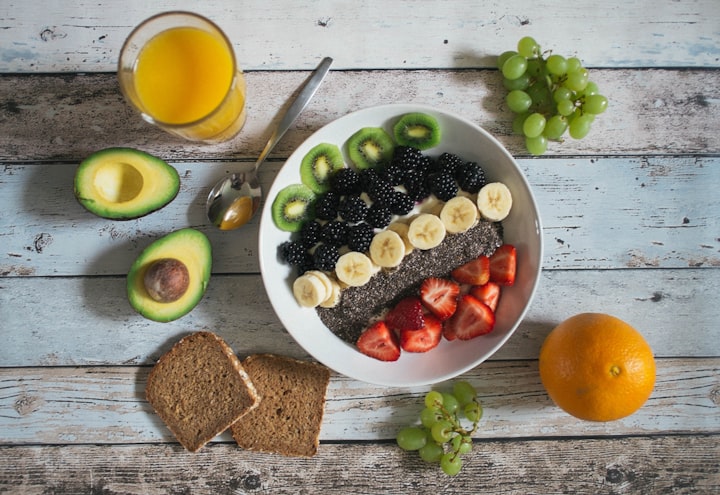Unlocking the Secrets to Longevity
A Comprehensive Guide

Introduction:
Everyone wants to live a long and fulfilling life, but the key to longevity is not always easy to find. With so much conflicting information available, it can be challenging to know what works and what doesn't. However, there is hope! Advances in science have provided us with a better understanding of how our bodies age, and the steps we can take to slow down the process. In this comprehensive guide to longevity, we will explore the science behind aging, the best practices for living a healthy lifestyle, and common misconceptions about longevity. So, let's dive in!

The Science Behind Aging
As we age, our bodies undergo a series of changes that can lead to a decline in our overall health. These changes include a decrease in muscle mass, a decrease in bone density, and a decline in cognitive function. However, the process of aging is not solely based on genetics. Our lifestyle choices and environmental factors can also play a significant role. Here are some of the key factors that contribute to the aging process:
Genetics and Aging
Genetics play a role in the aging process, but they are not the only determining factor. While certain genetic factors can increase the risk of age-related diseases, such as Alzheimer's and Parkinson's, lifestyle factors can also have a significant impact. For example, exercise has been shown to reduce the risk of developing age-related diseases, even in individuals with a genetic predisposition.

Oxidative Stress and Aging
Oxidative stress occurs when there is an imbalance between free radicals and antioxidants in the body. Free radicals are unstable molecules that can damage cells and contribute to the aging process. Antioxidants, on the other hand, are molecules that neutralize free radicals and protect cells from damage. By incorporating foods rich in antioxidants, such as fruits and vegetables, we can help to reduce oxidative stress and slow down the aging process.

Inflammation and Aging
Inflammation is a natural response of the immune system to injury or infection. However, chronic inflammation can contribute to the development of age-related diseases, such as arthritis and heart disease. By adopting an anti-inflammatory diet, which includes foods such as fatty fish and nuts, we can help to reduce chronic inflammation and promote longevity.

Best Practices for Living a Healthy Lifestyle
While genetics and environmental factors play a role in the aging process, there are steps we can take to slow down the process and improve our overall health. Here are some of the best practices for living a healthy lifestyle:
Exercise
Regular exercise is one of the most effective ways to promote longevity. Exercise has been shown to reduce the risk of age-related diseases, such as heart disease and diabetes, as well as improve cognitive function. Aim for at least 150 minutes of moderate-intensity exercise per week.

Diet
A healthy diet is essential for promoting longevity. Focus on whole foods, such as fruits, vegetables, whole grains, and lean proteins, and avoid processed foods and sugary drinks. Additionally, incorporating foods rich in antioxidants and anti-inflammatory properties, such as berries and leafy greens, can help to promote longevity.

Stress Management
Chronic stress can have a negative impact on our overall health, contributing to the development of age-related diseases. Incorporating stress-management techniques, such as meditation and deep breathing exercises, can help to reduce stress levels and promote longevity.

Common Misconceptions About Longevity
There are many misconceptions about longevity:
Misconception 1: Longevity is All About Genetics
While genetics do play a role in determining how long we live, they are not the only factor. Our lifestyle choices, such as diet and exercise, can have a significant impact on our overall health and longevity. In fact, studies have shown that lifestyle factors can account for up to 75% of our longevity.

Misconception 2: Longevity is Only About Living a Healthy Lifestyle
While living a healthy lifestyle is important for promoting longevity, it's not the only factor. Social connections and a sense of purpose in life have also been linked to increased longevity. Studies have shown that individuals who have strong social connections and a sense of purpose in life tend to live longer than those who don't.

Misconception 3: Longevity Means Living Forever
While we may wish to live forever, the reality is that we all have a limited lifespan. However, by adopting healthy lifestyle habits, we can extend our lifespan and improve our overall quality of life. The goal of promoting longevity is not to live forever, but to live a long and healthy life.

FAQs About Longevity
Q: Can we really slow down the aging process?
A: While we can't stop the aging process, we can slow it down by adopting healthy lifestyle habits. Regular exercise, a healthy diet, and stress management techniques can all help to slow down the aging process and improve our overall health.
Q: Can genetics predict how long we will live?
A: While genetics can play a role in determining how long we will live, they are not the only factor. Our lifestyle choices, such as diet and exercise, can have a significant impact on our overall health and longevity.
Q: Is there a specific diet that promotes longevity?
A: While there is no one-size-fits-all diet for promoting longevity, a healthy diet that is rich in whole foods, such as fruits, vegetables, whole grains, and lean proteins, can help to promote longevity. Additionally, incorporating foods that are rich in antioxidants and anti-inflammatory properties, such as berries and leafy greens, can also be beneficial.

Conclusion
Living a long and healthy life is a goal that many of us share. While genetics and environmental factors can play a role in the aging process, adopting healthy lifestyle habits can help to slow down the process and improve our overall health. By incorporating regular exercise, a healthy diet, stress management techniques, and social connections, we can promote longevity and live a fulfilling life. Remember, the goal of promoting longevity is not to live forever, but to live a long and healthy life.
About the Creator
cruddymoose
My name is cruddymoose. I am a passionate writer and wordsmith, has always had a love for the written word. With a keen eye for detail and a creative mind, I try to bring a unique voice to the world of writing.






Comments
There are no comments for this story
Be the first to respond and start the conversation.